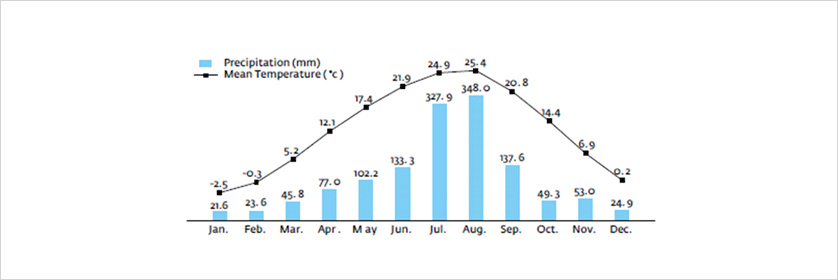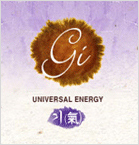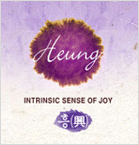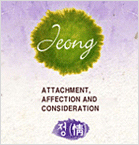- AFSUMB 2018
-
The 13th Congress of the Asian Federation of Societies for Ultrasound in Medicine and Biology (AFSUMB 2018) in conjunction with ACUCI 2018 and KSUM Open 2018
Beyound Asia, to the world with US
May 23(Wed.) - 26(Sat.), 2018 | Coex, Seoul, Korea
- Seoul & Korea
Seoul & Korea
- Page Path
 > Information > Seoul & Korea
> Information > Seoul & Korea
Visit the website linked below for more information on Seoul, Korea.
The Republic of Korea is a small country on the far eastern edge of Asia. Although it ranks 109th in the world in terms of land area, the country is a center of economic activity, culture, and arts. Korea was colonized by Japan in the early 20th century and later had to endure the Korean War (1950-53), but it has achieved amazing economic growth in a short period, dubbed "the Miracle on the Han River."
Today, Korea is an industrial nation standing tall on the world stage. Its semiconductor, automobile, shipbuilding, steel making, and IT industries are on the leading edge in global markets. It hosted the 1988 Seoul Olympics and the 2002 FIFA World Cup Korea/Japan. More recently, Korean dramas, movies, and music are attracting many audiences in Asian countries and beyond, creating what is being called the "Korean Wave." Korea's new standing in the international community was highlighted in 2010 with the nation becoming the first Asian country to chair the G20 and host the G20 Seoul Summit.
- General
-
- Contry NameRepublic of Korea (South Korea)
- National FlagTaegeukgi
- National FlowerMugunghwa
- Capital CitySeoul (10.2 million) (2012)
- LangugeKorean (Wrighting system Hangeul)
- Population51,03 million
- Size30.3 km from north to south
and 36.78 from east to west - Country Dialing Code+82
- Time ZoneGMT + 9 (Korea Standard Time KST)
Climate and Weather
The Republic of Korea lies between 38ºN and 33ºN latitude and 126ºE to 132ºE longitude. The country has a continental climate of very cold, dry winters and very hot, humid summers. Winters are influenced by westerly winds from Siberia and the Mongolian plateau, while summers are generally characterized by an oceanic climate due to moist, warm winds from the Pacific Ocean. Korea has four distinct seasons, though spring and autumn tend to be short. Spring comes in early April and lasts throughout May. The hot and humid summer begins in June and lasts about four months. The summer rainy season lasts from the end of June to mid July. Summer ends in late September, giving way to crisp, clear autumn days that last until the end of October. It becomes colder in November, and a very cold, bleak winter sets in during December and lasts until the end of February.
 Monthly Mean Temperature and Precipitation in Seoul
Monthly Mean Temperature and Precipitation in Seoul
 Source: Korea Meteorological Administration http://web.kma.go.kr/eng/index.jsp
Source: Korea Meteorological Administration http://web.kma.go.kr/eng/index.jsp
Food
A diverse array of food and dishes can be found throughout Korea.
Korea was once primarily an agricultural nation, cultivating rice as their staple food since ancient times. These days Korean cuisine is characterized by a wide variety of meat and fish dishes along with wild greens and vegetables. Various fermented and preserved food, such as kimchi (fermented spicy cabbage), jeotgal (matured seafood with salt) and doenjang (fermented soy bean paste) are notable for their specific flavor and high nutritional value.

The prominent feature of a Korean table setting is that all dishes are served at the same time. Traditionally, the number of side dishes varied from 3 for the lower classes to 12 for royal family members. Table arrangements can vary depending on whether a noodle dish or meat is served. Formal rules have developed for table setting, demonstrating the attention people pay to food and dining. Compared to neighboring China and Japan, a spoon is used more often in Korea, especially when soups are served.
Culture
For over five thousand years, the Korean people have managed to maintain their exceptional culture despite numerous acts of aggression from its powerful neighbors including China, Russia and Japan. Knowing that the last 100 years of Korean history includes invasion, occupation, war and dictatorship, visitors to the country are almost always amazed at just how quickly Korea was able to recover and become a leading democratic economic power. The recovery is known as the Miracle on the Han (river), but once you come to Korea and feel it’s energy, you will know that it’s no miracle. There is a sense of energy that exists in Korean consciousness, regardless of whether an individual is Buddhist or Christian, or atheist. Most Korean people attribute the success of their country to this energy, which is divided into three types: Gi, Heung and Jeong. Grasping these important principles of the Korean belief system will surely instill a deep understanding of Korean culture
-
 Gi is a universal energy that is widely mentioned in martial arts like taekwondo. It is not just limited to physical energy;
Gi is a universal energy that is widely mentioned in martial arts like taekwondo. It is not just limited to physical energy;
it extends into the spiritual state as well, and exists everywhere. It is a sort of sense of connectedness with everything around. -
 One of the most beautiful aspects of Korean culture is known as heung, best described in English as an intrinsic sense of joy, that keeps Koreans afloat even in the most difficult times.
One of the most beautiful aspects of Korean culture is known as heung, best described in English as an intrinsic sense of joy, that keeps Koreans afloat even in the most difficult times.
-
 The notion of jeong is very complex, but basically is the notion of caring for others and putting others before oneself. Koreans do not easily express their feelings and emotions toward others explicitly, however, you will likely feel jeong almost instantly upon your arrival, as new friends offer to personally escort you to the doctor when you’re sick, you receive a new pair of gloves because the lady at your boarding house noticed you didn’t seem to have any, and it seems that almost every time you eat dinner someone else pays.
The notion of jeong is very complex, but basically is the notion of caring for others and putting others before oneself. Koreans do not easily express their feelings and emotions toward others explicitly, however, you will likely feel jeong almost instantly upon your arrival, as new friends offer to personally escort you to the doctor when you’re sick, you receive a new pair of gloves because the lady at your boarding house noticed you didn’t seem to have any, and it seems that almost every time you eat dinner someone else pays.




